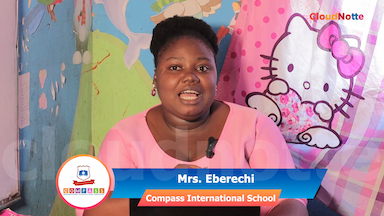In recent years, online learning has revolutionized education, breaking down barriers of geography, time, and access. From traditional universities to corporate training programs, the shift to digital platforms has reshaped how we think about education and lifelong learning. As we look towards the future, it’s clear that online learning will continue to evolve, driven by technological advancements, changing learner expectations, and the need for flexibility in an increasingly complex world. This article will explore the exciting developments on the horizon for online learning, highlighting key trends and innovations that promise to enhance the educational experience for learners of all ages.
The Rise of Personalization in Online Learning
One of the most significant trends shaping the future of online education is the move towards personalized learning experiences. As artificial intelligence (AI) and machine learning technologies become more sophisticated, educational platforms will increasingly be able to tailor content to individual learners.
Personalization can take many forms, from adaptive learning algorithms that adjust the difficulty and type of content based on a student’s performance to recommendations for supplementary materials that cater to their interests. This level of customization not only enhances engagement but also improves learning outcomes by ensuring that students receive the support they need to succeed.
Imagine a student struggling with a particular math concept, in a traditional classroom, they might fall behind while waiting for the teacher's attention. In a personalized online learning environment, however, AI can identify the struggle and provide targeted exercises, video tutorials, or interactive simulations to help the student master the concept at their own pace. This shift towards personalization will make education more effective and inclusive, allowing learners to thrive regardless of their starting point.
Immersive Learning Through VR and AR
Virtual reality (VR) and augmented reality (AR) technologies are set to transform online learning by creating immersive educational experiences that were previously unimaginable. With VR, learners can be transported to different worlds—whether that’s exploring ancient civilizations, conducting virtual lab experiments, or practicing surgery in a risk-free environment.
AR, on the other hand, overlays digital information onto the real world, allowing learners to engage with their surroundings in new ways. For instance, an AR application could help medical students visualize human anatomy while dissecting a cadaver or allow history students to see historical events unfold in real-time as they explore a museum exhibit.
These technologies not only make learning more engaging but also provide practical experiences that enhance understanding and retention. As VR and AR become more accessible and affordable, we can expect to see their integration into online courses across various disciplines.
The Evolution of Blended Learning Models
While online learning offers flexibility, there is still immense value in face-to-face interactions. The future of education will likely see a rise in blended learning models that combine the best of both worlds.
In blended learning environments, students can benefit from the convenience of online coursework while also participating in in-person sessions that foster collaboration and social interaction. This hybrid approach allows educators to create a more balanced curriculum that leverages the strengths of both online and traditional teaching methods.
For example, a university might offer a course where lectures are delivered online, but students are required to attend in-person to work together on projects or group discussions. This model not only enhances the learning experience but also helps build a sense of community among students, which is often lacking in purely online formats.
Emphasis on Lifelong Learning and Micro-credentialing
As the job market continues to evolve rapidly, the importance of lifelong learning will only grow. Online education will play a crucial role in helping individuals continuously update their skills and knowledge to remain competitive.
Micro-credentials, a short courses leading to certifications in specific skills, will be in high demand. These credentials allow learners to demonstrate their expertise in niche areas, making them more attractive to employers. For instance, a marketing professional might complete a micro-credential in digital marketing analytics to enhance their resume.
Educational institutions and online platforms are already beginning to offer these bite-sized learning opportunities, and this trend is expected to accelerate. As learners seek to upskill or pivot their careers, micro-credentialing will provide a flexible and efficient way to meet their educational needs.
Global Learning Communities and Increased Accessibility
The internet has the power to connect learners from all corners of the globe, and the future of online learning will harness this potential to create vibrant global learning communities.
With platforms that facilitate collaboration and interaction among students from diverse backgrounds, learners can gain new perspectives and insights that enrich their educational experience. For example, a group of students from different countries might work together on a project, sharing their unique cultural viewpoints and approaches to problem-solving.
Moreover, the increased accessibility of online learning will open doors for learners who may have previously faced barriers to education. Initiatives aimed at providing internet access and digital literacy training in underserved communities are crucial for ensuring that everyone has the opportunity to participate in online education.
Conclusion:
The future of online learning is characterized by promising innovations and trends that are poised to revolutionize education. As technology advances and learner expectations evolve, we anticipate a personalized, immersive, and inclusive learning environment. From the emergence of micro-credentials to the integration of virtual and augmented reality, the possibilities are boundless. By embracing these developments, we can create a future where education is more engaging, effective, and accessible for learners of all ages.






